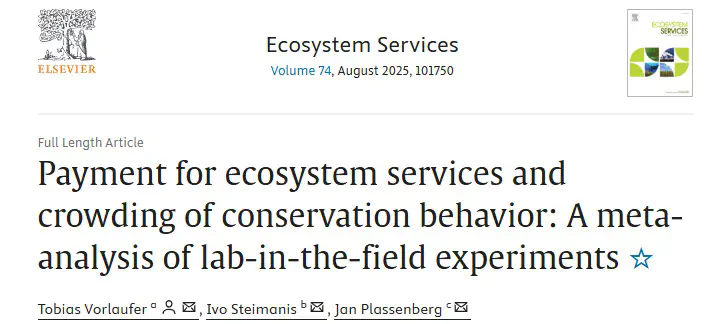Payment for ecosystem services and crowding of conservation behavior: A meta-analysis of lab-in-the-field experiments

Abstract
Concerns have been raised that payments for ecosystem services (PES) may crowd out land users’ non-monetary motivations to engage in conservation behavior. Especially once incentives are terminated, PES risk to be ineffective or even counterproductive. So far, research has produced mixed evidence. We present the first meta-analysis of studies that investigated crowding effects of PES through lab-in-the-field experiments with 2,894 real-world resource users taking 44,540 conservation decisions. On average, PES are successful in increasing conservation behavior and do not crowd out conservation behavior once incentives have been terminated. Although PES demonstrate greater effectiveness in settings where local resource users directly benefit compared to settings where third parties benefit, there is no evidence suggesting systematic differences in crowding effects between these two situations once PES have been terminated. Based on the available experimental evidence, the frequently voiced risk that PES crowd-out conservation, especially once payments are terminated, cannot be substantiated. However, methodological concerns regarding the internal and external validity of current experiments raise questions about the broader applicability of these findings. This paper outlines potential avenues for future research to address these challenges.